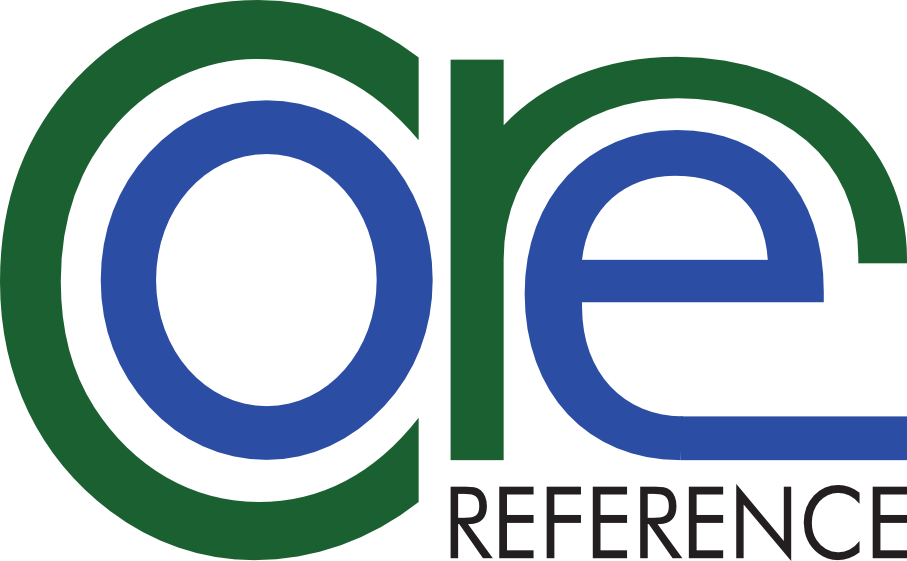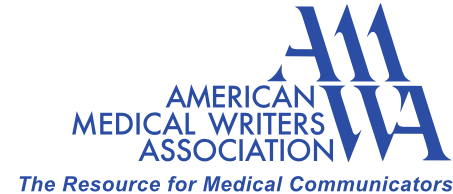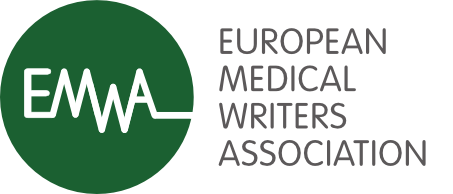February 2024
Medicines and Vaccines
ICH
- CIOMS 𝐆𝐥𝐨𝐬𝐬𝐚𝐫𝐲 𝐨𝐟 𝐈𝐂𝐇 𝐭𝐞𝐫𝐦𝐬 𝐚𝐧𝐝 𝐝𝐞𝐟𝐢𝐧𝐢𝐭𝐢𝐨𝐧𝐬 (Version 5, 07 Feb 24) was published by the Council for International Organizations of Medical Sciences (CIOMS). 𝘛𝘩𝘪𝘴 𝘨𝘭𝘰𝘴𝘴𝘢𝘳𝘺 𝘤𝘰𝘮𝘣𝘪𝘯𝘦𝘴 𝘵𝘩𝘦 𝘵𝘦𝘳𝘮𝘴 𝘢𝘯𝘥 𝘥𝘦𝘧𝘪𝘯𝘪𝘵𝘪𝘰𝘯𝘴 𝘪𝘯𝘤𝘭𝘶𝘥𝘦𝘥 𝘪𝘯 𝘵𝘩𝘦 𝘨𝘶𝘪𝘥𝘦𝘭𝘪𝘯𝘦𝘴 𝘰𝘧 𝘵𝘩𝘦 𝘐𝘯𝘵𝘦𝘳𝘯𝘢𝘵𝘪𝘰𝘯𝘢𝘭 𝘊𝘰𝘶𝘯𝘤𝘪𝘭 𝘧𝘰𝘳 𝘏𝘢𝘳𝘮𝘰𝘯𝘪𝘴𝘢𝘵𝘪𝘰𝘯 𝘰𝘧 𝘛𝘦𝘤𝘩𝘯𝘪𝘤𝘢𝘭 𝘙𝘦𝘲𝘶𝘪𝘳𝘦𝘮𝘦𝘯𝘵𝘴 𝘧𝘰𝘳 𝘗𝘩𝘢𝘳𝘮𝘢𝘤𝘦𝘶𝘵𝘪𝘤𝘢𝘭𝘴 𝘧𝘰𝘳 𝘏𝘶𝘮𝘢𝘯 𝘜𝘴𝘦 (𝘐𝘊𝘏). Click here to access the document.
CTR and CTIS
- An updated version of the Q&A document on the protection of Commercially Confidential Information and Personal Data while using CTIS has been released (version 1.4, dated 31 January 2024). Changes include an additional Q&A 3.4 on patient facing documents disclosure (Question 3.4 ‘Is it possible not to disclose patient facing documents publicly?’).
- The EudraCT & EU CTR Frequently Asked Questions document has been revised: V2.3. Most updates are to do with questions relating to the transition of trials to CTIS.
- Reminder of upcoming CTIS user training events:
- 8-11 April 2024, 14:00-18:30 Amsterdam time
- 10-13 June 2024, 9:00-13:30 Amsterdam time
- On 23 January 2024, the EMA published CTIS: how to get started and how to transition a trial.
- CTIS Bitesize Talk entitled How to submit a transitional trial held on Thur 29 February 2024. A video recording will be available after the event.
- Clinical Trials Information System (CTIS) webinar to be held on 25 March 2024 (13:00 Amsterdam time) entitled “Last Year of Transition.” The open event will cover the implementation of the CTR, and discuss transitional trials and how they are updated in CTIS. An update on the current status of CTIS will also be provided. Registration details can be found here. Participants can provide their questions from 4-18 March in slido with the event code #infomarch2024.
- The Netherlands’ Central Committee on Research Involving Human Subjects (CCMO) published two new templates, specifically for substantial modifications (SM) in clinical trials with medicinal products (CTR):
- A template Cover Letter
- And a Modification Description.
In the case of a SM, it is important that reviewers have a good overview of the submitted documents and modifications. Therefore, CTIS requires submission of both documents for each substantial modification. This prevents delays due to lack of clarity and will thus contribute to speeding up the assessment process.
- The EMA released the following updated CTIS training materials this month (February 2024):
- CTIS Training materials - latest updates, Version 1.3, which aims to help users to easily identify which are the latest updated materials on the EMA website and which materials have been developed since the last time users have consulted them.
- CTIS Evaluation Timelines, Version 2.0, the purpose of which is to provide Member States and sponsors with an overview of the timelines and deadlines across the Clinical Trial Application process.
European Health Data Space (EHDS) News
- EFPIA has published a statement highlighting key considerations around the European Health Data Space (EHDS) proposed health data sharing law. Topics highlighted and discussed in the EFPIA statement include addressing data in scope for secondary use and protection of intellectual property and trade secrets.
- An interview with Aneta Tyszkiewicz, director for digital data at EFPIA can be found here which covers EFPIA feedback on the EU’s proposed health data sharing law.
- Thirty-five large health stakeholder organisations representing patients, health professionals, researchers and others at both European Union (EU) and Member State level have expressed shared concerns about the latest negotiations on the proposed Regulation on the European Health Data Space (EHDS). In their press release they state “ten fundamental issues have not been addressed satisfactorily in the legislative positions that form the bases for the interinstitutional negotiations (trilogues) between Council, the European Parliament and the European Commission.” Read the full press release here. Report A9-0395/2023 on the proposal for a regulation of the European Parliament and of the Council on the European Health Data Space can be accessed here.
UK and MHRA News
- DeVito et al has published Barriers and Best Practices to Improving Clinical Trials Transparency at UK Public Research Institutions: A Qualitative Interview Study, a paper based on semi-structured interviews with individuals working in clinical research governance, administration, and trial management from UK public research institutions (i.e., universities and NHS Trusts). One of the key findings is that “almost universally, new policies and procedures have been established to ensure investigators are aware of, and supported in, fulfilling their transparency commitments; however challenges remain.”
FDA Guidance and News
- FDA released the draft guidance “Collection of Race and Ethnicity Data in Clinical Trials and Clinical Studies for FDA-Regulated Medical Products.” which provides the recommendations on the standardised approach/terminology for collecting and reporting race and ethnicity data consistently in submissions including information collected and reported from clinical trials and clinical studies for FDA-regulated medical products. This draft guidance revises the FDA final guidance "Collection of Race and Ethnicity Data in Clinical Trials" issued in 2016.
- FDA partners with the Duke-Margolis Center for Health Policy to hold a public workshop “Enhancing Adoption of Innovative Clinical Trial Approaches.” on 19-20 March 2024 to discuss efforts to advance innovation of clinical trial design and conduct. The workshop will be held in hybrid format - on-site at the Kellogg Conference Hotel (Washington, DC) and virtually. Participants can register for the workshop at the Duke-Margolis event webpage.
- On 5 March 2024, FDA is conducting a public workshop to discuss aspects of complex adaptive, Bayesian, and other novel clinical trial designs. The meeting will consist of two sessions. The first session will focus on case studies illustrating various aspects of complex innovative designs and implementation. The second session will consist of panel discussions motivated by the case studies.The workshop offers both in-person and virtual attendance options. Registration details here.
- The Modernization Transition Top Questions document has been updated to include information about the retirement of the classic CT.gov and modernised PRS.
- FDA has issued draft guidance titled “Use of Data Monitoring Committees in Clinical Trials” to provide recommendations to help sponsors of clinical trials determine (1) when a data monitoring committee (DMC) (also known as a data and safety monitoring board (DSMB) or a data and safety monitoring committee (DSMC) or an independent data monitoring committee (IDMC)) would be useful for clinical trial monitoring and (2) what procedures and practices they should consider to guide their operations. When finalized, this guidance will supersede the final guidance for clinical trial sponsors titled “Establishment and Operation of Clinical Trial Data Monitoring Committees,” issued in March 2006. Comments should be submitted by 15 April 2024.
- CDER’s Office of Generic Drugs (OGD) and the European Medicines Agency (EMA) launched a voluntary pilot program to facilitate concurrent discussions between generic drug applicants and the two regulatory bodies. Under the pilot program, applicants can request a joint meeting with FDA and EMA to address specific scientific inquiries pertaining to the development of complex generic drugs or hybrid medicines.
- The latest version of PRS Beta has been released to PRS and allows users to view PRS quality assurance (QA)/quality control (QC) comments for study protocols directly from the Record Summary page. To learn more, please read the latest Release Notes.
- The FDA has told an advocacy group that “it is not planning to take a tougher stance against wayward clinical trial sponsors and investigators that fail to register studies or report results...”. The article FDA gives a mixed response to a petition seeking greater clinical trial transparency in STAT News goes on to explain that the FDA prefers to rely on voluntary compliance while retaining the right to exercise regulatory discretion when considering penalties for disclosure violations.
- FDA issued final guidance on 22 Feb 2024 entitled “Assessing COVID-19-Related Symptoms in Outpatient Adult and Adolescent Subjects in Clinical Trials of Drugs and Biological Products for COVID-19 Prevention or Treatment.” FDA has issued the guidance to “provide sponsors and investigators with considerations for approaches on how common COVID-19-related symptoms can be measured and analyzed in clinical trials evaluating drugs or biological products for the prevention or treatment of COVID-19 in outpatient adult and adolescent subjects.” It supersedes guidance issued on 29 Sep 2020.
EMA Guidance and News
- The EMA has published the following news article: Clinical trials’ transition to new EU system - one year left. This article reminds Sponsors of clinical trials expected to continue after 30 January 2025, that they must consider the time required for Member States to complete the authorisation procedure, which can take up to three months. There are also useful links to previously shared transition guidance. Also published: Getting started with CTIS: Sponsor quick guide.
- EMA has published a concept paper with proposals to establish a scientific guideline for the pharmaceutical development and manufacture of bacteriophage medicinal products intended for the therapeutic treatment or prophylaxis of one or more specific bacterial infection(s) or infectious disease(s) in humans. An EMA guideline currently exists for veterinary medicinal products but there is no regulatory guidance for medicinal products for human use in the EU. The consultation process ends on 31 March 2024.
- EMA hosted a two-day clinical trial analytics workshop on 25-26 January 2024. Over 200 participants participated in the discussions, which highlighted the desire for improved access to detailed and up-to-date clinical trial data, the importance of patient involvement, standardisation, and identification of the right data sources. Speaker presentations and video recordings from the 2 days are available here.
- EMA has published a concept paper on use of non-inferiority designs to assess the safety and effectiveness of new drugs in clinical trials. The proposal aims to incorporate the ICH guideline on estimand and sensitivity analyses in clinical trials and consolidate existing guidance on inferiority trials. The proposed guideline will replace CPMP/EWP/482/99: “Points to consider on Switching between Superiority and Non-Inferiority” and CPMP/EWP/2158/99 “Guideline on the Choice of Non-Inferiority Margin.” The end of consultation is 31 May 2024 and comments should be submitted here.
Real-World Data
- Toader et al published The use of healthcare systems data for RCTs, providing context on healthcare systems data (HSD) as data source for a study. From a UK database screen they identified 84 eligible studies, 28 that were planning to use HSD for at least one outcome, and 24 using HSD as the sole data source for at least one outcome. Outcomes collected from HSD were predominantly related to mortality-related outcomes, hospital admission, adverse events and cost-related outcomes.
- Two new catalogues on real-world data sources and studies help regulators, researchers and companies identify and use such data when investigating the use, safety, and effectiveness of medicines. The catalogues promote transparency, encourage the use of good practices, and build trust in research based on real-world data. They replace the ENCePP Resources Database and the EU PAS Register, introducing various improvements for the user.
- EMA’s webinar on the newly published HMA-EMA catalogues of RWD sources and studies will be held on 4 March 2024, 10.00-12.00 CET. Follow live or watch the recording after the event. This webinar will provide an overview of the catalogues including their benefits and significance in regulatory practices. Learn how to use the catalogues, see a demonstration of their key features, supporting documents and FAQs.
Transparency and Disclosure Resources and News
- TransCelerate Biopharma is to hold a webinar on Thursday 28 March 2024 entitled “Enabling Individual Participant Data Return (iPDR): An Overview of TransCelerate’s Individual Participant Data Return Package.” Registration details here.
- A report jointly published by AllTrials campaign, Cochrane Denmark, Cochrane Norway, Cochrane Sweden, Dam Foundation, Melanomföreningen, and TranspariMED identified a large number of trials (475 studies with almost 84,000 participants) completed in the Nordic countries Denmark, Iceland, Finland, Norway and Sweden that did not publicly disclose trial results. Details of the report will be presented at a webinar on 15 Mar 2024 10 AM CET.
- Free registration for this webinar to be held on 14 Mar 2024 at 14.00 UK time: Clinical Trial Transparency - CTR Transition Studies: What you need to know and how to meet the 30 Jan 2025 deadline.
Development Strategy News
- EMA has published a concept paper for the development of a reflection paper on a tailored clinical approach in biosimilar development. The concept paper has been released for a three month public consultation period ending 30 April 2024. Comments should be submitted using the survey form available here.
- Kahan et al published The estimands framework: a primer on the ICH E9(R1) addendum and highlights a frequent obstacle which is managing apprehension when considering estimands, often leaving them up to the biostatistician despite it requiring team input. The article provides a concise summary of the subject and is a good orientation for those who are unfamiliar with the topic.
- Baba et al published Guidelines for reporting pediatric and child health clinical trial protocols and reports: study protocol for SPIRIT-Children and CONSORT-Children, a protocol for establishing a SPIRIT extension related to pediatric studies.
- Ecraid have released a 6-part series of training modules on Adaptive Clinical Trial Designs. CME certification is available; the modules are a free introduction to adaptive clinical trial designs.
- TransCelerate has announced the newest release from the Clinical Content & Reuse (CC&R) Initiative, the Clinical Template Suite (CTS). The CTS reflects research trends and guidance to develop harmonised protocol structure and content, demonstrating value in automation and reuse of protocol content, and helping to lay a foundation for digitisation of the protocol and study design elements. Latest release announcement here. According to their website the 2024 update “reflects evolved best practices (i.e., master protocols, pregnancy & breastfeeding, reducing gender-specific language, liver safety) as well as other content topics (PRO’s, EU-CTR alignment, Statistical Analyses approach, CTIS).” The update supports other TransCelerate initiatives by incorporating the Modernization of Clinical Trial Conduct (MCTC) Data Return Plan and Patient Experience Study Participation Feedback Questionnaire into the CPT. Download the updated CPT from here. Summary of changes presentation provided here. Notably, the new CPT has been updated to ensure content alignment with EU-CTR requirements and to reflect alignment of CPT variables with CTIS system requirements.
Artificial Intelligence/Machine Learning
- Shick et al., have published “Transparency of artificial intelligence/machine learning-enabled medical devices” which reports the outcomes of a workshop discussion held in October 2021 on “the meaning and role of transparency for stakeholders, as well as ways to promote transparency of all AI/ML-enabled software that meets the definition of a device.”
- Goodman et al. have published “AI-Generated Clinical Summaries Require More Than Accuracy” which opines on clinical applications of generative AI and large language models (LLMs) to summarise clinical notes, medications, and other forms of patient data from EHR. The authors observed that while LLMs promise “powerful opportunities to streamline information-gathering from the EHR, they also bring unique risks that are not clearly covered by existing FDA regulatory safeguards.” The authors urge the FDA to clarify its oversight before this method becomes a part of routine patient care.
News from Asia Regulators
- Since 24 January 2024, TCTR has implemented a system to send automatic email reminders to registrants whose registered trials:
- Have passed 11 months since its completion date,
- Have not been taken up for a period exceeding 180 days since its last update.
Please update your trial status, otherwise the trial status will be labelled as "unknown". See Announcement page.
Medical Devices
Updates from FDA
- FDA’s Center for Devices and Radiological Health will initiate the reclassification process for most in vitro diagnostic (IVD) tests that are currently class III (high risk) into class II (moderate risk). The majority of these tests are infectious disease and companion diagnostic IVDs. Reclassification would allow less burdensome marketing clearance pathway and may encourage more manufacturers to develop these tests, which could increase competition and provide patients with increased access to these tests.
Updates from the MDCG
- Standardised device nomenclature is essential for traceability, safety monitoring, and transparency. The latest MDR guidance document MDCG 2024-2 describes the procedures for the updates of the European Medical Device Nomenclature (EMDN). EMDN will be used by device manufacturers when registering their products in the EUDAMED database.
Updates from the UK
- The UK Association for Medical Device Approved Bodies, known as Team-AB, was officially launched on 19 Feb 2024. The new industry body is designed to help navigate the new legal and regulatory landscape post-Brexit. It has backing from 11 medical device certification bodies, including the key players BSI and TÜV SÜD. The group aims to represent medical device companies in dealings with stakeholder groups such as MHRA and industry trade associations.
Updates from TGA Australia
- For medical devices to be marketed in Australia, manufacturers of medical devices must demonstrate compliance with certain Essential Principles. TGA has recently released an updated Essential Principles checklist, provided in Word and PDF formats. The checklist actually serves as a template to help
- identify the applicable safety and performance requirements
- document a rationale for any of the safety and performance requirements that are not relevant
- summarise the evidence supporting of each of the relevant requirements
- comply with regulations as part of a post-market review or investigation
- apply for an Australian conformity assessment certificate.


